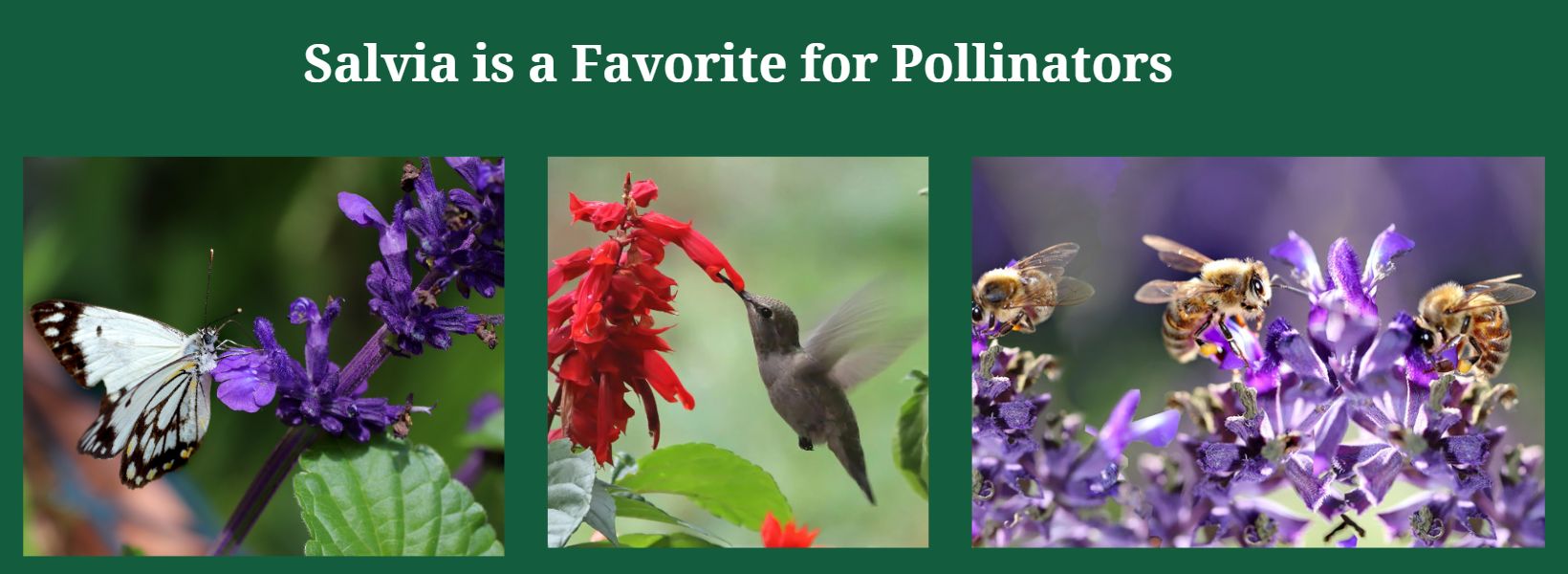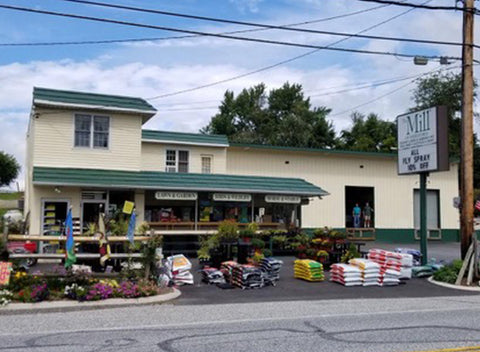One of my favorite plants for attracting hummingbirds is Salvia.
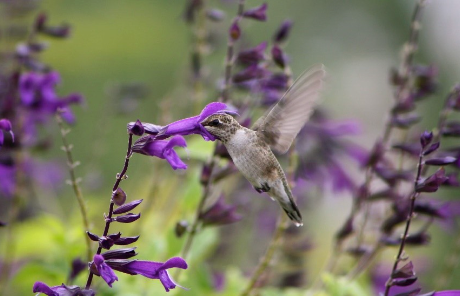
There are over 1000 species of Salvia so we will discuss some of the best for attracting hummingbirds.
First, keep in mind that bees have a hard time seeing red while hummingbirds readily see the color. So, any red Salvia would draw hummingbirds into your garden.
Annual red-varieties that grow well in our region are:
- Salvia splendens Saucy Red
- Salvia coccinea Summer Jewel Red
- Salvia greggi Autumn Sage
- Salvia microphylla Hot Lips
- Salvia x hybrida Scarlet Sage
- Salvia elegans Pineapple Sage
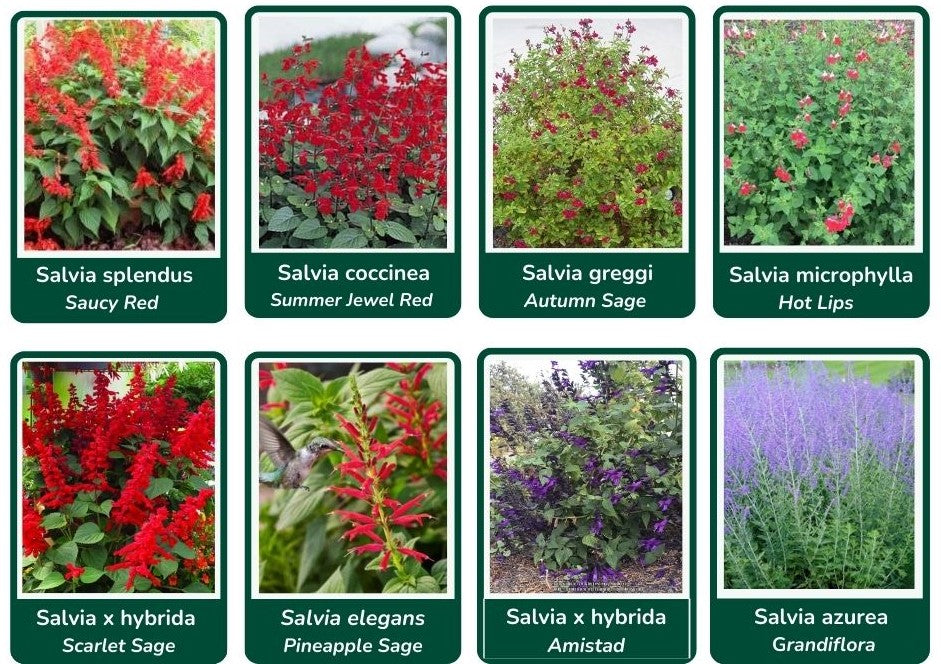
Although they are considered annuals, some may return in mild winters.
Purple/Blue varieties that also attract hummingbirds include:
- Salvia x hybrida Amistad
- Salvia azurea grandiflora
- Salvia patens Gentian
- Salvia Victoria Blue
- Salvia Azure Snow
- Salvia Fairy Queen
- Salvia Mystic Spires
- Salvia gauranitica Black and Blue
- Salvia leucantha Mexican Bush Sage

Other annual colors can be found in pinks, yellows, and peaches. They are all types of Salvia x hybrida and can often be found in the annual section of your garden center.
Perennial varieties include:
- Salvia sclarea Cleary Sage
- Salvia lyrata – our native Salvia
- over 40 varieties of Salvia nemorosa with colors ranging from dark purple to rose pink to white
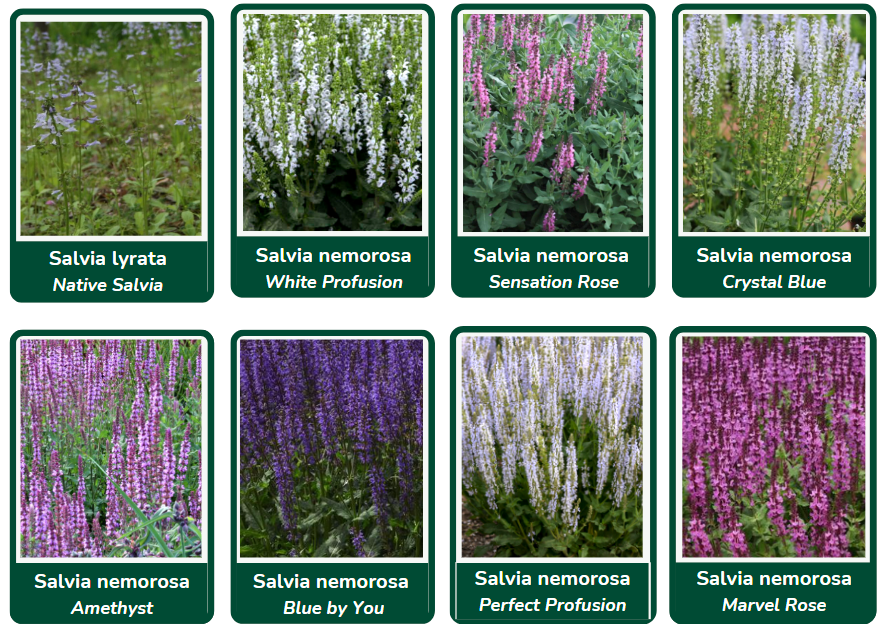
So, if you enjoy seeing the hummingbirds add some Salvia to your gardens in several locations as hummingbirds can get territorial over their food source.
By Cindy King, CPH, The Mill
